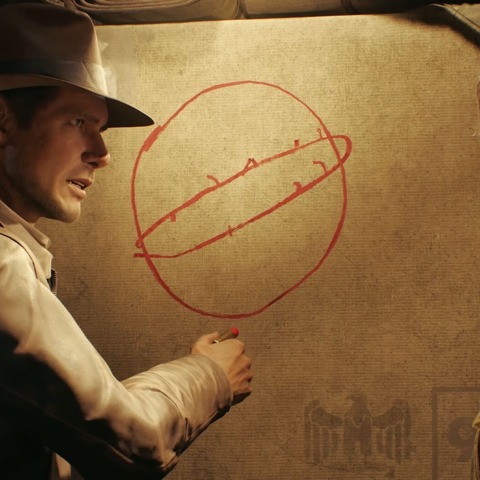Sony's announcement that it will acquire Destiny 2 developer and Halo creator Bungie for $3.6 billion is a massive one for the games industry. And as usual, the news has triggered a lot of speculation about what the corporate overlords at Sony have in mind for the game development studio. Bungie has already made clear that Destiny 2 won't become a PlayStation exclusive. There have been reports that Sony is looking to beef up its offerings for a subscription-based competitor to Xbox's Game Pass, for instance, and Destiny 2, with its large dedicated player base, would make for a useful addition to that initiative. But while we're speculating, here's my feeling on the situation: This is as much about things beyond video games as it is about Sony continuing to expand its PlayStation portfolio.
Sony isn't just looking at Destiny 2 for its big player base, or the possibilities of adding to its subscription service, or the revenue that selling expansions and seasonal content might bring in. Sony is building out its opportunities to make not just games, but movies and TV shows. Viewed in that light, Bungie is a big win--because the developer also has its eyes on other media.
Back in early 2021, Destiny 2's former director, Luke Smith, and project lead Mark Noseworthy were both promoted into new roles. Noseworthy became vice president of the "Destiny universe," while Smith became its executive creative director. In a press release, Bungie said it was interested in expanding into additional media.
"In addition to building state-of-the-art facilities to support the growth and development of their talented employees, one of the primary drivers of Bungie’s expansion is to increase the commitment to the long-term development of Destiny 2, tell new stories in the Destiny Universe, and create entirely new worlds in to-be-announced IPs," the release said. It also specifically mentioned "additional media," although it didn't supply any more details about what those additional media might be.
Still, last year, Bungie made it clear that it's thinking about Destiny 2 beyond just the bounds of the game. And indeed, Destiny 2 encompasses a massive world with a huge amount of lore that spans centuries. Bungie has recently taken to releasing "lore anthologies," which compile some of its huge number of lore entries into printed volumes. There are four such anthologies at this point, and that they exist at all feels like a demonstration of demand for additional story content in the universe. There's a lot of ground that Bungie could cover with more projects than just the game.
Meanwhile, Sony is already merging its games business with its movie and TV business. This month marks the release of Uncharted, a film adaptation of Sony-owned Naughty Dog's blockbuster game series. That's the first film from Sony's new PlayStation Productions studio, which was formed in 2019 and is ostensibly dedicated to bringing PlayStation intellectual property into other media. Also on the docket are a TV show adaptation of Naughty Dog's The Last of Us at HBO, which might be on its way later this year, a movie adaptation of Ghost of Tsushima, developed by Sucker Punch, and a TV show version of Twisted Metal.
So, if you're looking at ways game IP can be valuable beyond the sphere of just games, the Bungie acquisition makes a huge amount of sense. Bungie was already planning on adaptations of Destiny into other areas, something Sony is expanding on and already has the resources for. What's more, Sony gets not only Destiny and whatever Bungie had in mind for that IP--it also gets Bungie's additional IP, which could also be leveraged into other properties. After all, Microsoft's Halo TV show adaptation is finally about to see the light of day on Paramount Plus in March. And while Microsoft owns the Halo IP, the game story and characters on which it was based were originally created by Bungie.
Seen in this light, the acquisition aligns with Bungie's goals, too. Independently, the studio would need to make inroads into other media on its own, or build a whole lot of partnerships, in order to expand into TV and movies for Destiny. As part of Sony, that expansion becomes a whole lot easier, and it seems like Bungie CEO Pete Parsons was thinking as much based on his comments in an interview with GamesIndustry.biz.
"You can't help but look at Sony's accomplishments, not just as a great platform, and having easily some of the best development teams in the entire world. But also one of the greatest entertainment companies in the world," Parsons said in the interview. "We saw this great opportunity to build--not just Destiny, we're working on more than Destiny--these great interactive experiences, which we think we're good at. But also being able to explore these worlds even more."
Sony stands to gain a lot from the Bungie deal, it's true. The publisher is looking to develop its live service offerings, as Sony Interactive Entertainment CEO Jim Ryan told GamesIndustry.biz, and it seems very likely that this deal will be good for whatever new subscription plans the publisher is developing. But don't count out the idea that Sony is looking to take its game properties in new directions. It feels very likely that we're about to see a lot more game-related media coming out of Sony, and Bungie's sci-fi universe is poised to be a major part of it.
Destiny 2 News And Guides
- Destiny 2 King's Fall Raid Guide: How To Beat Every Encounter And Open Every Secret Chest
- Five Years Of Destiny 2's Dramatic, Transformational Changes
- Destiny 2: Season Of Plunder Guides, Season Pass Gear, Exotics
- + Show More Destiny 2 News And Guides Links (2)
- Destiny 2 Season Of Plunder: Seasonal Challenges Guide Week 10
- How To Get Map Fragments, Treasure Coordinates, And Maps In Destiny 2: Season Of Plunder





